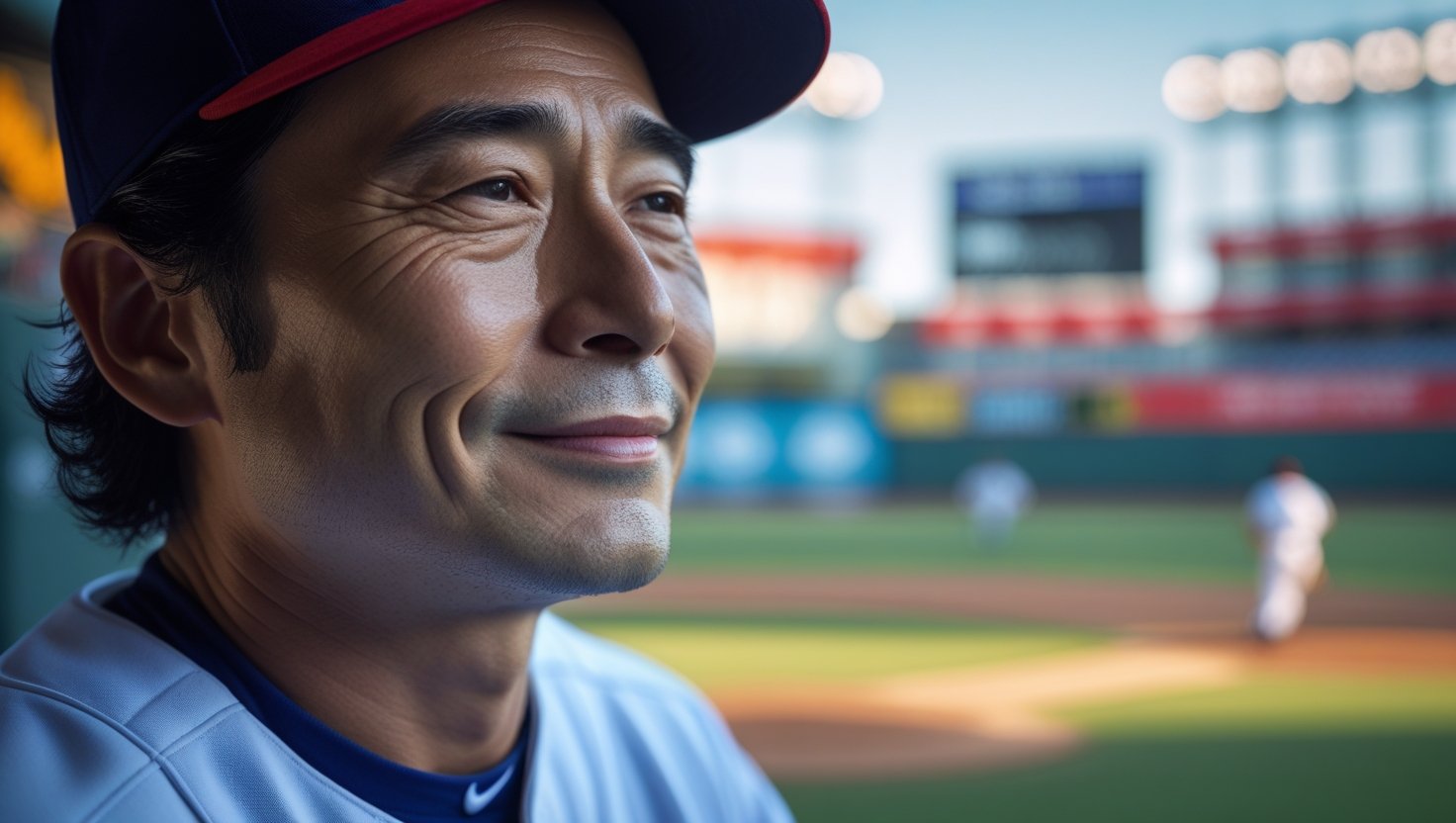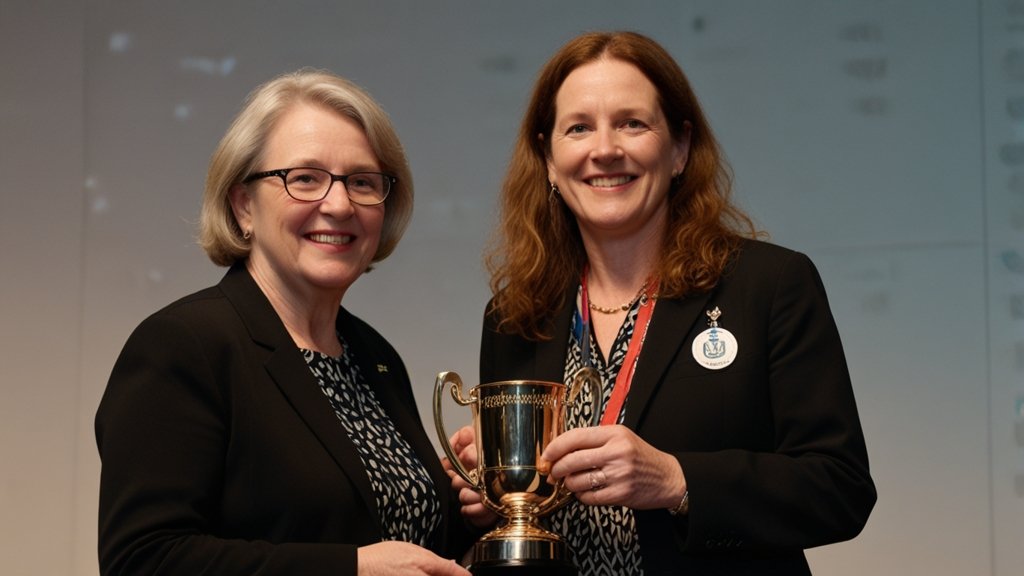Ichiro Suzuki stands alone in baseball history. He wasn’t the strongest slugger or the flashiest player, but he mastered hitting the baseball like no one else. Imagine a player so consistent, so focused, that he collected more professional hits than anyone who ever lived. That player is Ichiro. Born in Japan, he became a legend in two countries, shattering records and changing how people viewed baseball on both sides of the Pacific. His journey from a small town in Japan to becoming a nearly unanimous first-ballot Hall of Famer in 2025 is a story of dedication, skill, and cultural significance that redefined greatness.
Early Life and Dominance in Japan
Ichiro Suzuki was born on October 22, 1973, in Kasugai, Japan. His passion for baseball started incredibly early. His father, Nobuyuki Suzuki, recognized his talent and became his first coach, instilling a rigorous work ethic. Their training sessions were legendary, often lasting for hours. Young Ichiro would swing a heavy bat hundreds of times daily, building the unique strength and hand-eye coordination that became his trademark. He practiced hitting wiffle balls thrown from close range to sharpen his reflexes. Consequently, by his high school years, he was already an exceptional talent, though his unorthodox swing sometimes drew skepticism.
He began his professional career in Japan’s Nippon Professional Baseball (NPB) league in 1992 with the Orix BlueWave. Initially, he struggled to find playing time and even considered quitting. However, his persistence paid off. Under manager Shōzō Doi, Ichiro transformed into a superstar. He revolutionized the role of the leadoff hitter, emphasizing getting on base and using his incredible speed. Subsequently, he embarked on an unprecedented run of success:
- Seven Consecutive Pacific League Batting Titles (1994-2000): He mastered the art of placing hits wherever fielders weren’t.
- Three Straight Pacific League MVP Awards (1994-1996): His all-around play – hitting, speed, and defense – was unmatched.
- 1,278 Hits in Nine NPB Seasons: He averaged over 140 hits per season, showcasing remarkable consistency.
Moreover, Ichiro became a national icon in Japan. His disciplined approach, unique pre-swing routine (pointing his bat dramatically towards the pitcher), and reserved personality captivated fans. He wasn’t just a great player; he represented a distinct philosophy of baseball centered on precision, contact, and fundamental excellence. His success laid the groundwork for what was to come, proving Japanese position players could compete at the highest level. Therefore, when he expressed a desire to test himself in Major League Baseball (MLB), it sent shockwaves through both countries.
Crossing the Pacific: The MLB Debut That Changed Everything
The Seattle Mariners won the rights to negotiate with Ichiro after the 2000 season. His transition was fraught with immense pressure. No Japanese position player had ever succeeded as an everyday player in MLB. Many doubted his slight frame could handle the grueling 162-game schedule, the velocity of MLB pitching, or the cultural differences. Furthermore, skeptics questioned whether his slap-hitting style would work against bigger, stronger American pitchers. Regardless, the Mariners believed in his talent, signing him to a contract.
Ichiro arrived for the 2001 season carrying the weight of a nation’s expectations. Almost immediately, he silenced the doubters. From his very first at-bat – a sharp infield single – he demonstrated he belonged. His rookie season was nothing short of phenomenal:
- AL MVP: First player since Fred Lynn in 1975 to win Rookie of the Year and MVP in the same season.
- AL Batting Title (.350 average): Proved his contact skills translated perfectly.
- AL Stolen Base Title (56 steals): Showcased his elite speed.
- 242 Hits: Announced his arrival as a hitting machine.
- Gold Glove Award: Established himself as a defensive force with a cannon arm from right field.
His impact extended far beyond statistics. Ichiro became a cultural phenomenon in Seattle and across the US. His intense focus, unique style, and quiet confidence drew massive media attention and legions of new fans. Importantly, he paved the way for future Japanese position players like Hideki Matsui, Shohei Ohtani, and Seiya Suzuki. His success fundamentally reshaped how MLB scouts and executives viewed talent from Japan, opening a crucial pipeline. Consequently, the “Ichiro Effect” transformed international player acquisition forever.
Peak Years: Redefining Hitting Excellence
Ichiro didn’t just arrive in MLB; he dominated it for a decade. Anchoring the Mariners’ lineup, he established himself as the premier contact hitter of his generation, and arguably, of all time. His approach was simple yet incredibly difficult to master: see the ball, make contact, and use his speed. He rarely struck out and consistently sprayed line drives to all fields. Pitchers knew throwing him a strike was dangerous, yet avoiding walks was nearly impossible because of his bat control.
The pinnacle of his hitting prowess came in 2004. That season, Ichiro achieved the seemingly unthinkable: he broke George Sisler’s 84-year-old single-season hits record. The chase captivated baseball. Ultimately, on October 1st, 2004, against the Texas Rangers, he laced a first-inning single for hit number 259, then added three more to finish with an astonishing 262 hits. This record stands as one of the most impressive offensive feats in modern baseball history. Furthermore, he won his second AL batting title (.372) that year.
*Table 1: Comparing Legendary Single-Season Hit Totals*
| Player | Year | Hits | Team | League | Outcome of Record Attempt |
|---|---|---|---|---|---|
| Ichiro Suzuki | 2004 | 262 | Seattle Mariners | AL | Broke Sisler’s Record |
| George Sisler | 1920 | 257 | St. Louis Browns | AL | Original Record Holder |
| Lefty O’Doul | 1929 | 254 | Philadelphia Phillies | NL | Fell Short |
| Bill Terry | 1930 | 254 | New York Giants | NL | Fell Short |
| Al Simmons | 1925 | 253 | Philadelphia Athletics | AL | Fell Short |
Defensively, Ichiro was equally brilliant. Playing right field, he combined exceptional range with one of the most powerful and accurate throwing arms the game has ever seen. Runners learned not to test him. As a result, he won 10 consecutive Gold Glove Awards from 2001 to 2010, a testament to his sustained defensive mastery. His offensive and defensive peak solidified his reputation as a complete five-tool player.
*Table 2: Ichiro’s Peak MLB Achievements (2001-2010)*
| Category | Total | League Ranking/Notes |
|---|---|---|
| Hits | 2,244 | Most in MLB by 262 hits over next closest (Derek Jeter) |
| Batting Average | .331 | Won 2 Batting Titles (2001, 2004) |
| Stolen Bases | 383 | Won 1 Stolen Base Title (2001) |
| Gold Glove Awards | 10 | Every season from 2001-2010 |
| All-Star Selections | 10 | Every season from 2001-2010 |
| Seasons with 200+ Hits | 10 | MLB Record (All 10 seasons in this span) |
Longevity and the Pursuit of History
Ichiro’s greatness wasn’t confined to a short burst; it was defined by remarkable durability and consistency. He possessed an unparalleled work ethic and a finely tuned physical regimen that allowed him to perform at an elite level well into his 40s. While his speed gradually diminished, his hitting instincts and defensive intelligence remained sharp. After 11 stellar seasons with Seattle (2001-2011), he continued his career with the New York Yankees (2012-2014), Miami Marlins (2015-2017), and even returned for a final, poignant stint with the Mariners in 2018 and 2019.
The pursuit of milestones became a hallmark of his later years. On August 7, 2016, playing for the Marlins, Ichiro laced a triple off Chris Rusin of the Colorado Rockies. That hit was his 3,000th in Major League Baseball, making him only the 30th player to reach that exclusive club. This cemented his MLB legacy beyond his initial splash. However, Ichiro always viewed his career holistically, encompassing both his NPB and MLB achievements. Therefore, his combined professional hit total held immense personal significance.
He finished his MLB career with 3,089 hits. Added to his 1,278 hits in Japan, his combined professional total reached an astounding 4,367 hits. This number surpassed Pete Rose’s MLB record of 4,256 hits, establishing Ichiro as the most prolific hitter across the top professional leagues globally. While debates about league differences persist, the sheer volume and consistency required to amass that total across 28 professional seasons is staggering. Additionally, he finished with 509 MLB stolen bases, joining an elite group of players with 3,000+ hits and 500+ steals.
Legacy: Records, Cultural Bridge, and Immortality
Ichiro Suzuki retired after the 2019 season, leaving behind a legacy that transcends statistics. Statistically, his records are awe-inspiring: the single-season hits record (262), 10 consecutive Gold Gloves, 10 consecutive 200-hit seasons (an MLB record), and the combined professional hits record (4,367). He redefined the value of contact hitting and speed in an era increasingly dominated by power and strikeouts. His approach proved that putting the ball in play relentlessly was a sustainable and devastating offensive strategy.
His cultural impact is equally profound. Ichiro was the pioneer who successfully bridged Japanese and American baseball. He demonstrated that the fundamentals honed in NPB – discipline, precision, defensive excellence – could thrive in MLB. Subsequently, he paved the way for a wave of Japanese talent, changing the landscape of the major leagues forever. He became a beloved figure in both countries, respected for his professionalism, humility, and unique personality. His iconic moments – the hits, the throws, the pre-swing ritual – are etched in baseball lore. Consequently, he became a global ambassador for the sport.
The ultimate recognition came in 2025. Ichiro Suzuki was elected to the National Baseball Hall of Fame in Cooperstown in his first year of eligibility, receiving nearly unanimous support (99.8% of the vote). This induction solidified his status not just as one of the greatest baseball players of all time, but as a unique figure whose career spanned continents and redefined excellence. He entered the Hall not only for his unmatched hitting prowess but also for his role as a cultural trailblazer.
Table 3: Ichiro’s Monumental Career Totals
| Category | NPB (9 Seasons) | MLB (19 Seasons) | Combined Total |
|---|---|---|---|
| Hits | 1,278 | 3,089 | 4,367 |
| Batting Average | .353 | .311 | .323 (est.) |
| Stolen Bases | 199 | 509 | 708 |
| Gold Glove Awards | 7 | 10 | 17 |
| Batting Titles | 7 | 2 (AL) | 9 |
| All-Star Selections | 7 | 10 | 17 |
Conclusion
Ichiro Suzuki’s career is a testament to the power of precision, consistency, and unwavering dedication. He didn’t just play baseball; he mastered an art form – the art of hitting. From dominating Japan’s Pacific League to shattering records and changing perceptions in Major League Baseball, Ichiro carved a unique path that no player has ever replicated. His 4,367 combined professional hits stand as a monument to his durability and skill. More than just numbers, he became a vital cultural bridge, opening MLB doors for Japanese stars and captivating fans worldwide with his unique style and quiet brilliance. His first-ballot, nearly unanimous Hall of Fame induction in 2025 was the fitting capstone for a career that redefined greatness. Ichiro wasn’t just a contact hitter; he was the contact hitter, baseball’s unmatched global icon whose legacy will inspire generations.
Frequently Asked Questions
- What makes Ichiro’s 4,367 hits so special?
It’s the highest total of professional hits ever recorded by a player competing in the top leagues (Japan’s NPB and MLB). This number surpasses Pete Rose’s MLB-only record (4,256) and highlights Ichiro’s incredible consistency and longevity across two very competitive leagues over 28 seasons. - Why was Ichiro’s move to MLB such a big deal?
Before Ichiro, no Japanese position player had successfully transitioned to become an everyday MLB star. Many doubted players from Japan could handle MLB pitching or the long season. His instant and sustained success (MVP and Rookie of the Year in 2001) proved them wrong, paving the way for future Japanese stars and changing how MLB teams scouted international talent. - What is Ichiro’s most famous MLB record?
His most famous record is the single-season hits record. He broke George Sisler’s 84-year-old record by collecting 262 hits for the Seattle Mariners during the 2004 season. This feat is widely considered one of the hardest records to break in modern baseball. - Besides hitting, what else was Ichiro known for?
Ichiro was an elite defensive right fielder, winning 10 consecutive Gold Glove Awards in MLB (plus 7 in Japan). He possessed an incredibly strong and accurate throwing arm that deterred base runners. He was also a prolific base stealer, finishing with over 500 steals in MLB and nearly 700 combined professionally. - What did Ichiro’s Hall of Fame election in 2025 signify?
His near-unanimous first-ballot election (99.8%) signified universal recognition of his unique greatness. It honored not only his staggering statistical achievements (hits, Gold Gloves) but also his immense cultural impact as the pioneer who bridged Japanese and American baseball, forever changing the game’s global landscape.








